Inside the Tank | DryHop Brewers’ Brant Dubovick
Inside the Tank is a new series where we interview head brewers/brewmasters and discuss everything from their background in beer to topical issues in the craft beer community. For our first installment of Inside the Tank, we went to DryHop Brewers in Chicago and talked with head brewer Brant Dubovick.
How did you get into brewing?
I had bartended in some brew pubs so I had gotten into craft beer in the 90s. I liked craft beer before I started brewing. My wife had bought me a home brewing kit for my birthday so I started messing around with that and really got to fall in love with the science and making the beer as opposed to going to a bar and drinking it.
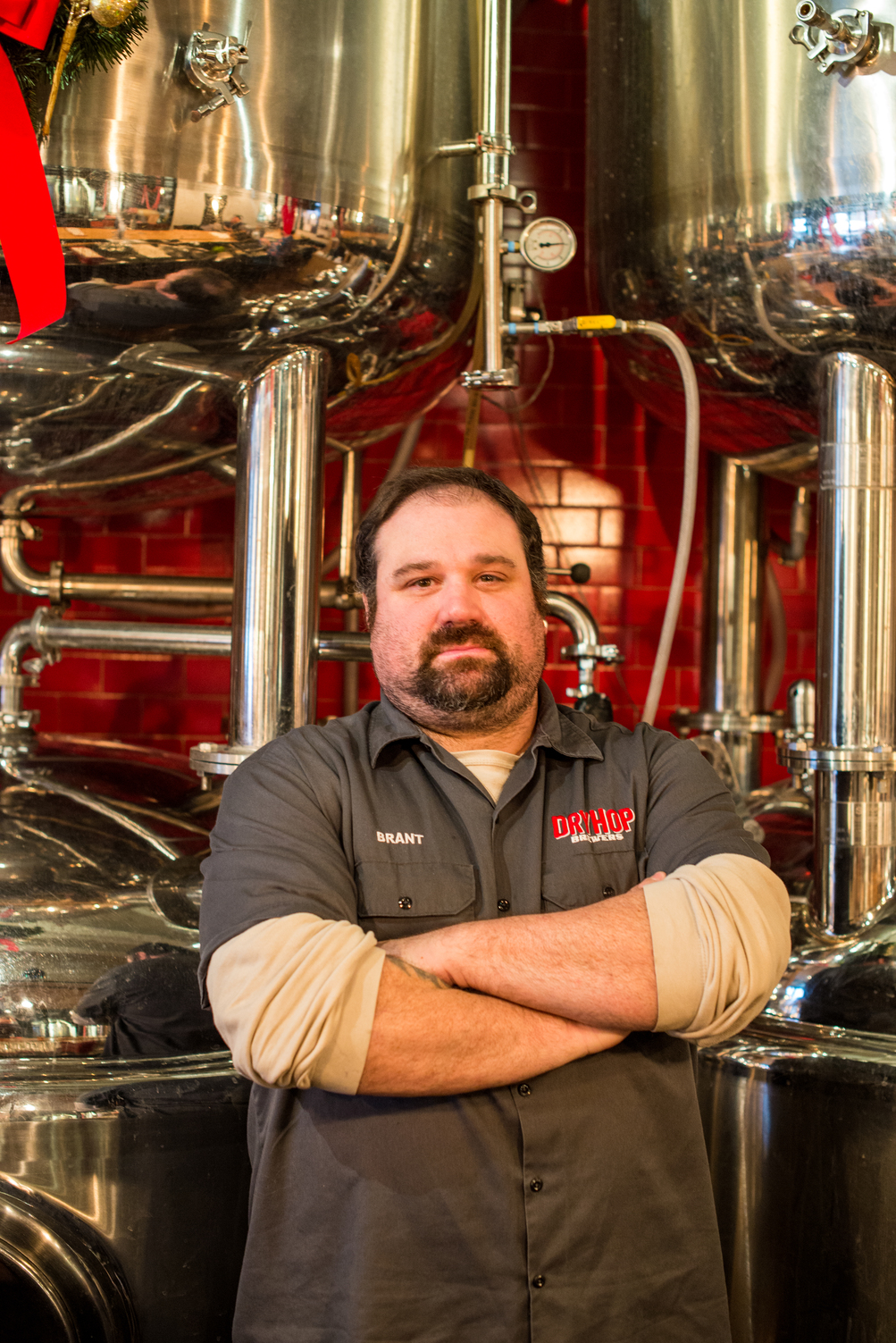
I did a couple of batches, never really made anything worth mentioning. I got offered the job of assistant brewer at Southhampton Publick House in 1999. Unfortunately turned it down because it wasn’t offering health benefits at the time so I became a project manager in New York. I was a project manager for 4-5 years and hated getting up for work, hated the 9-5 lifestyle.
I sat down with my wife and we started talking about other options. I knew the head chef at Lancaster Brewing Company, not the head brewer, the head chef, and he got me an interview with the brewmaster at the time. Back in 2004 if you were willing to take $8 an hour you could pretty much get a job at any brewery you wanted and I was willing to take $8 an hour.
I was at Lancaster for a year and a half as an assistant and then proceeded to go back to Pittsburgh where I went to college and got a job with Church Brew Works and I was the assistant brewer there for a year and a half and in 2006 I became the head brewer.
What made you make the jump to Chicago?
I wouldn’t say I wasn’t happy at Church Brew Works, but they started going in a more production route. It was more of a bottling and off-premise sales and I always fancied myself a brewpub brewer. My parents had a restaurant in New York, I grew up in the restaurant business, and I like the restaurant aspect of beer as well. I like food as you can see from me. I sort of wanted to stay with the brewpub concept.
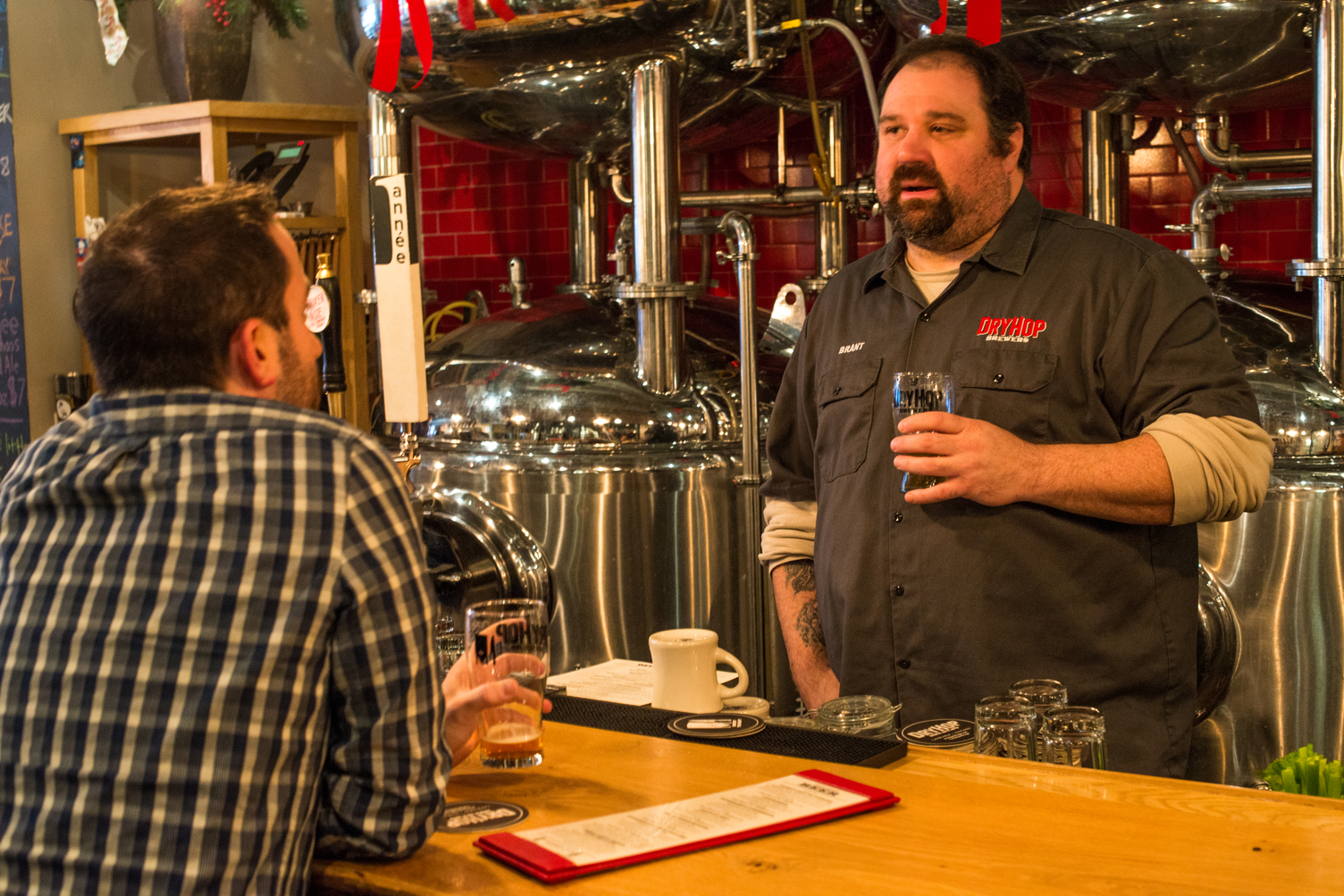
There wasn’t too much going on in Pittsburgh at the time which is the complete opposite of what’s going on there now. I took a shot and threw a resume out to Greg (Shuff), the owner of DryHop, which was in the planning stages at that time. I never felt like the Church (Brew Works) was my brewery because Bryan (Pearson) had been there for so long. He had been there for 10 years before i got there so it always had that feel that it was Bryan’s brewery. I wanted something that I could work on from the ground floor and make it my brewery.
Greg (Shuff) interviewed me in august of 2011 by phone, then he flew out to Pittsburgh and interviewed me there then a week later he called me and offered me the job. I discussed it with my wife and we decided to make the move.
Your style has been described as challenging, rebellious and unconventional – why is that?
This isn’t Germany, this is America, you don’t have to be constrained or stick to specific guidelines. I want to explore brewing. The reason I want to be a brewpub brewer is because you’re not brewing the same beer every week that’s going into the same bottle. You’re not working the canning or bottling line and just on repeat. There can be that sort of 9-5 mentality at those production breweries and I want a little more exploration as opposed to regimentation.
I like to incorporate stuff that’s going to pair well with food. I like playing with ingredients. Take for instance chili peppers. We put that in a beer last year called Dayton 500 with Ghost Pepper powder which isn’t everyone’s style but I liked it and I thought people would like it and people really dug it.
You mentioned pairing beer with food. That’s an increasing trend now – why is that?
I see the trend continuing. I think it’s continuing in Chicago and I think it’s continuing everywhere else. I’m new to Chicago I’ve only been here 5 years but its a very tavern-esque city. If you go into any corner tavern you’re guaranteed to see at least 3 craft beers.
A lot of these newer up-and-coming restaurants are very formal but not formal in the old white table cloth white china pattern. The old style of dining was very wine focused and I see the Millennials and Generation Xers that want good food but we don’t want to pay $85 for a bottle of wine and I think beer pairs right into that.
You can get a nice bomber or a nice pint for $8 as opposed to spending $85 for a bottle of wine. I think it sort of came from the thriftiness that came about in 2008 after the crash and people instead of going to a nice restaurant and spending $90 for a steak are going to a BYOB place where you can bring beer and enjoy it. I also think beer pairs better with food than wine. Some people don’t understand that. Beer is so much better with food than wine.
Do you have influence on the menu at DryHop?
We work together on the menu. We work closely to tailor the food menu around the beer. Our executive chef is very open to playing with all the beer styles and wanting to incorporate the beer into the menu.
I think it’s important that the beers pair with the food. I want all the beers to be able to pair with anything on the menu. I don’t want someone not to be able to order something on the menu because they’re having a certain beer.
You got a gold at GABF. What beer was it for and what is that feeling like to win a medal?
I got it for a Maibock but it’s actually Bryan’s (from Church Brew) recipe. I was the brewer at the time so I worked on the beer and brewed the beer but it was actually Bryan’s recipe. It was a Maibock and I got the medal in 2006.
It’s amazing to be recognized by your peers as one of the better brewers in the country. It’s so hard today with all these new breweries. Back in the early 2000s I think there were maybe 40 beers in the IPA category and now there’s over 300. Competition is fierce. It felt amazing.
What’s your favorite style of beer? If you’re not drinking a DryHop beer what are you drinking? What’s your favorite DryHop beer?
My favorite style if Czech Pilsner without a doubt. If I’m not drinking a DryHop I’ll be drinking a Haymarket pilsner. My goto is Dale’s Pale Ale if I’m going out to a concert or tailgating i’ll pick up a 12-pack of that.
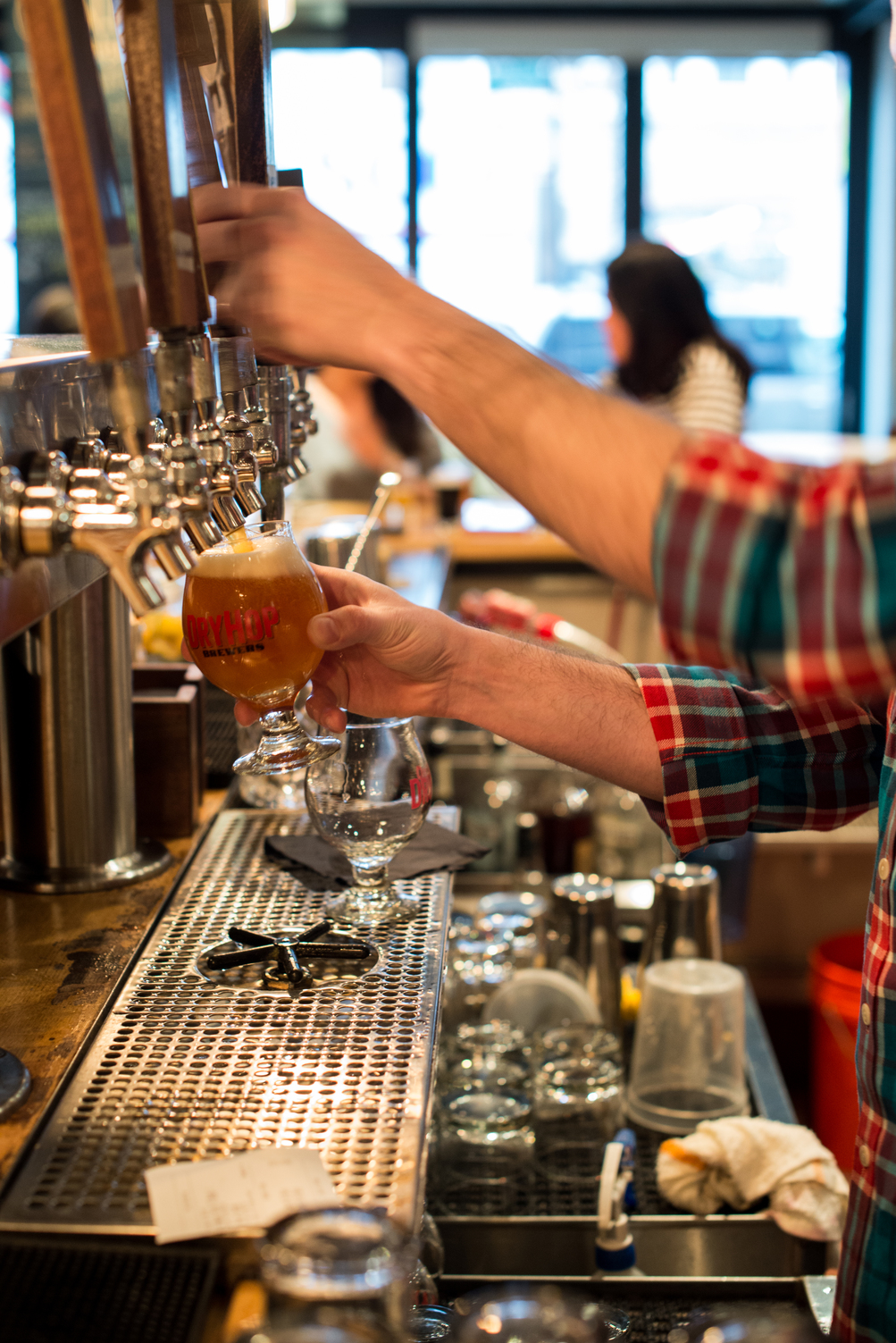
My favorite DryHop is The Judge our APA that we do with mosaic and amarillo. It’s one of the first beers we brewed and I think it’s one of the best beers we brewed. I find myself going back to that every year – can’t get enough of it. It’s one of our fastest selling beers. We’ll sell through a 10-barrel batch in about 8 days. It doesn’t last long.
DryHop has been extremely successful since the day it opened. What’s it like to be apart of a brewpub that’s packed every night?
What goes through my mind is that I can’t have a beer in my own place because I don’t have anywhere to sit. I have to look like a hobo in the brewhouse with people staring at me through the windows wondering what this guy is doing.
It’s amazing. I’ll go back to the GABF award, I’d much rather have this place packed overnight than win a million GABF awards. It’s great to see people enjoying something you put your blood sweat and tears into. After 6pm it’s hard to find a table in here. I love it. It makes me smile every time.
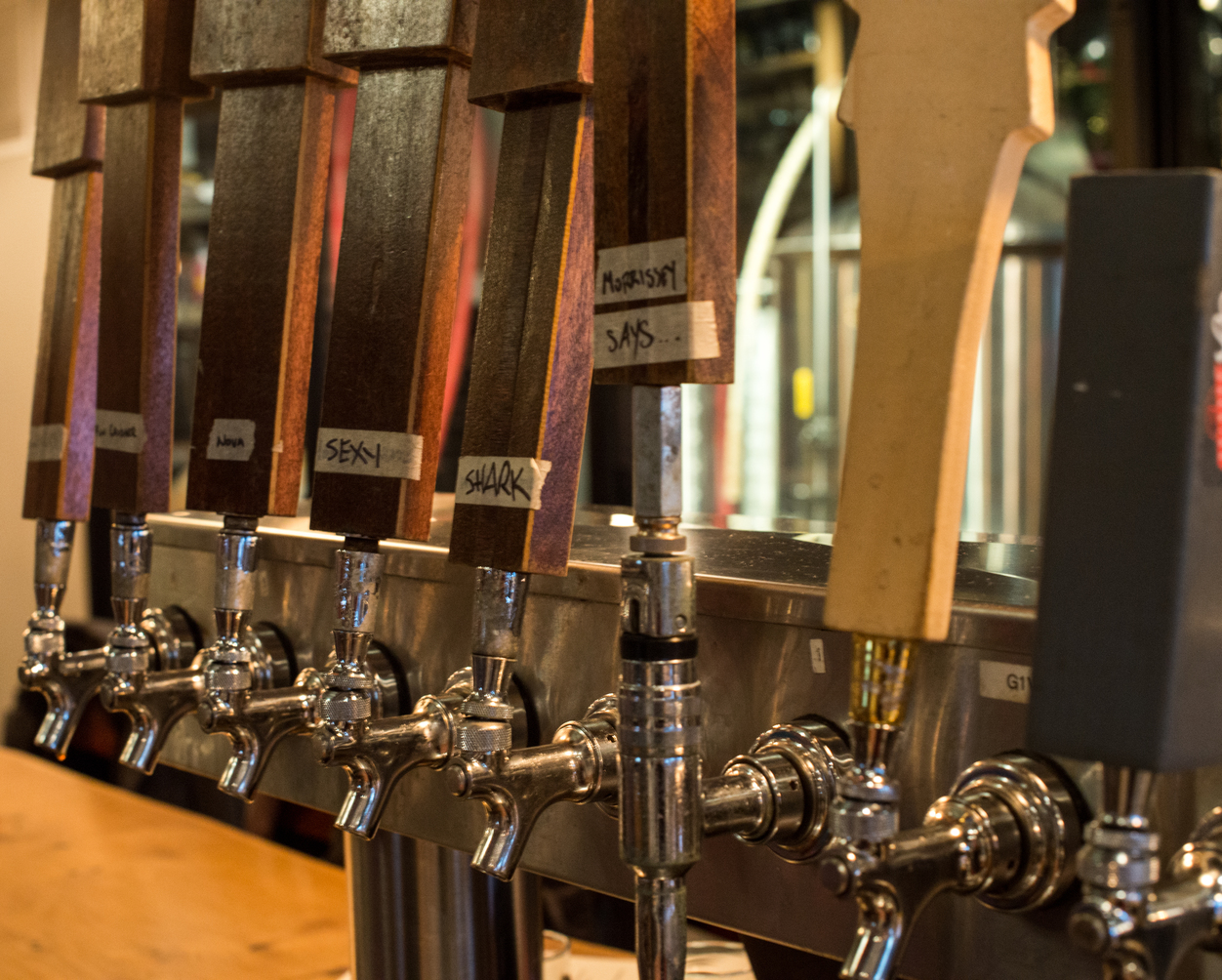
You and Greg opened a second brewery this year called Corridor. How did that come about?
Corridor opened October 15th and I oversee both Corridor and DryHop. When we started DryHop, it was meant to be a cookie-cutter model for other locations we might open up across Chicago. I’m hesitant to use “cookie-cutter” but that was kind of our vision for it. We wanted to see how DryHop went and if it worked well we would open up Corridor and then another DryHop but not called DryHop.
Greg fell in love with the restaurant concept of Four Corners and Lettuce Entertain You of having different vibes at every location – different beers, different menus. We said that if we did open up another location a brewery was going to be involved with it. It might be a totally different menu but we will brew our own beer there. It sort of evolved from that cookie-cutter concept to lets be like Lettuce Entertain You. The world’s our oyster we don’t have to be constrained to doing hop centric beers or American craft. Lets do Belgium and French farm house styles. Let’s put in a clay oven and do pizzas as opposed to doing a burger and chicken sandwich that DryHop is famous for.
It sort of evolved from that and in the beginning Greg was thinking we’d do two or three in Chicago and then migrate out to the suburbs and then go into other midwest cities like Indy or Milwaukee. That got scaled back then to just Chicago. People want beer here and it’s a huge city. If we find a piece of property that’s nice lets do it. There absolutely could be a third location.
The two breweries are less than two miles apart. How are they both able to be so successful?
I think we are successful because Lakeview is starving for beer. There is not a lot outside of Sheffield’s and that strip on Lincoln with The Green Lady and Northdown for people to get beer. They aren’t making their own beers. There are no brewpubs, the closest is Atlas which I guess you’d consider Lincoln Park.
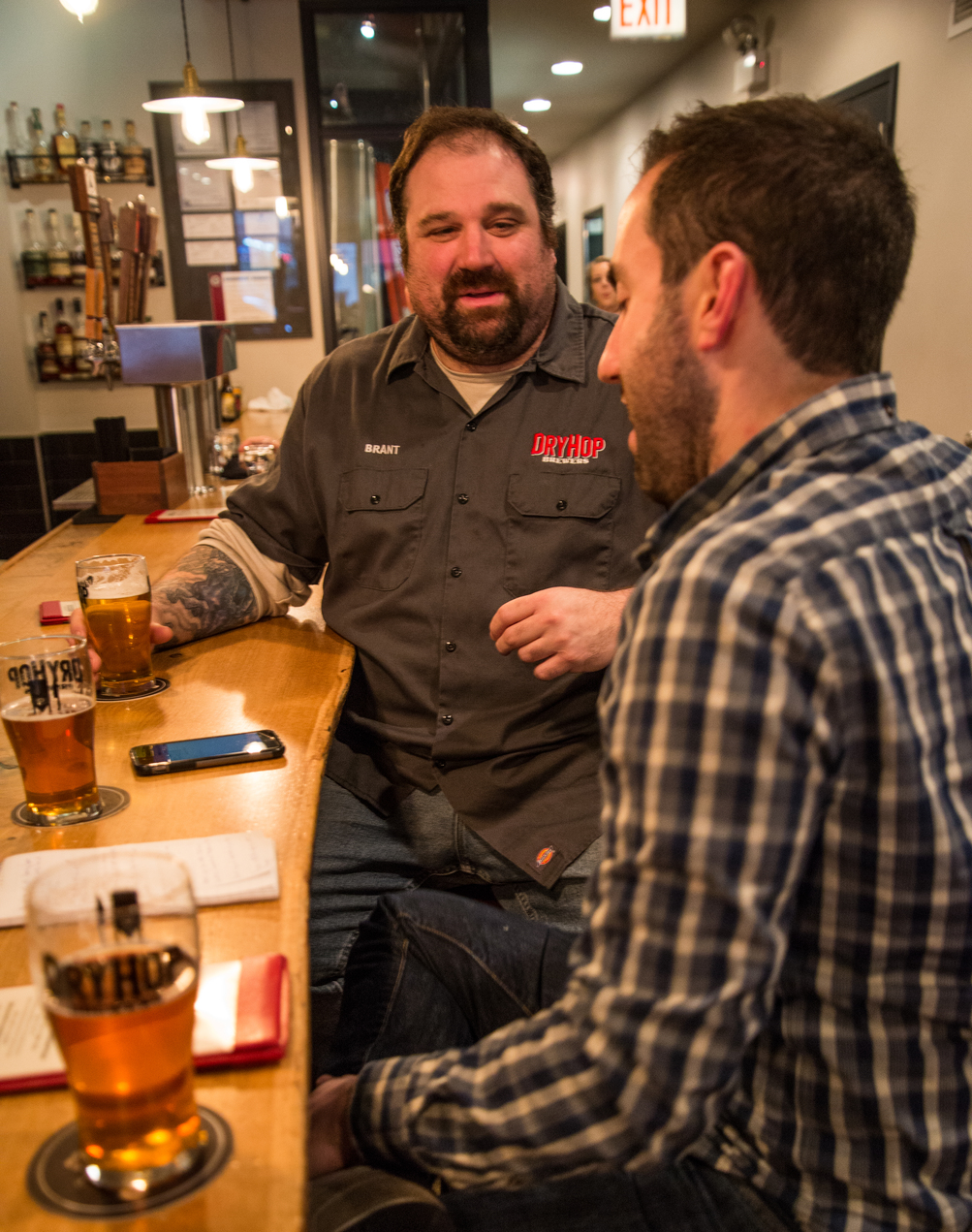
Greg lived here (Lakeview) when he moved to Chicago. He saw that we needed to do something beer-centric. We’re a mile and a half away but a mile and a half away in Chicago might as well be 20 miles.
I think it was planned and executed very well to succeed in Lakeview. We’ll see if we go to another neighborhood with more of a beer presence and maybe we’re not as successful. You don’t know if you don’t try and that’s what I love about Greg and working for DryHop and Corridor. There’s that willingness to give it a go. We don’t hold back we go forward.
People line up for hours and even overnight for beer. As a brewer what do you think about that?
I think it’s good. It’s obviously good. It’s good to see people enjoying a breweries product that much. I think it’s great to get the recognition out there. The thing I don’t like is that people are going out there buying those bottles and putting them on eBay for $300. Some of those people standing in that line are not doing it for the beer they are doing it for a profit. They are stealing from other people’s love of beer.
When you look at the beer geek segment it’s a really small segment of the craft beer community. I would say beer geeks make up maybe 5% of our business. I love them and they are the most vocal. They are awesome and they are flying the flag for craft beer. But I think 80% of our business is neighborhood focused. We wanted to be the neighborhood bar. If there’s blizzard conditions outside someone can walk out their door and come in for a drink. Our focus is on the community that we are in. We want people from Lakeview enjoying our beer. A lot of people standing in those lines are not craft beer fans.
What do you think about AB-InBev’s latest frenzy of acquisition of craft breweries?
I think it’s good for the brewery owners. Anyone who says they don’t get into the business to be able to support themselves and their family is lying. Yes I love the artistic aspect of it but when it boils down to it I want to pay my bills and take care of my family at the end of the day.
It’s really hard knowing what this industry pays to say no to $40 million when it’s on the table. When they are offering to you. I don’t fault them at all for taking that money. That’s your retirement fund right there when AB makes that offer.
Whether it’s good for craft beer – No I don’t think it is because Bud is just going to gobble it up and stuff it in a portfolio somewhere. The salespeople are just going to reiterate jargon that AB wants them to say.
I really like what they did with Goose though. They leave Goose alone to do their thing in Chicago. All they really wanted was 312 and Honkers and that’s what they got. I love that they are still doing Green Line and Bourbon County in Chicago. I think that’s (Bourbon County) an amazing beer. AB also pays well. A lot of brewers don’t get paid well so I cant fault someone for taking a job at Goose if they can be making double there than at another place.
Is the term craft beer still relevant? Is there a distinction between craft beer and beer?
There’s still a distinction. We’re producing a much higher quality product than the big guys. We’re much more hands on. Yes some bigger craft brew houses have automated processes but for the most part as a craft brewer you’re in their stirring the mash and involved in all the other steps. It’s still a crafted product.
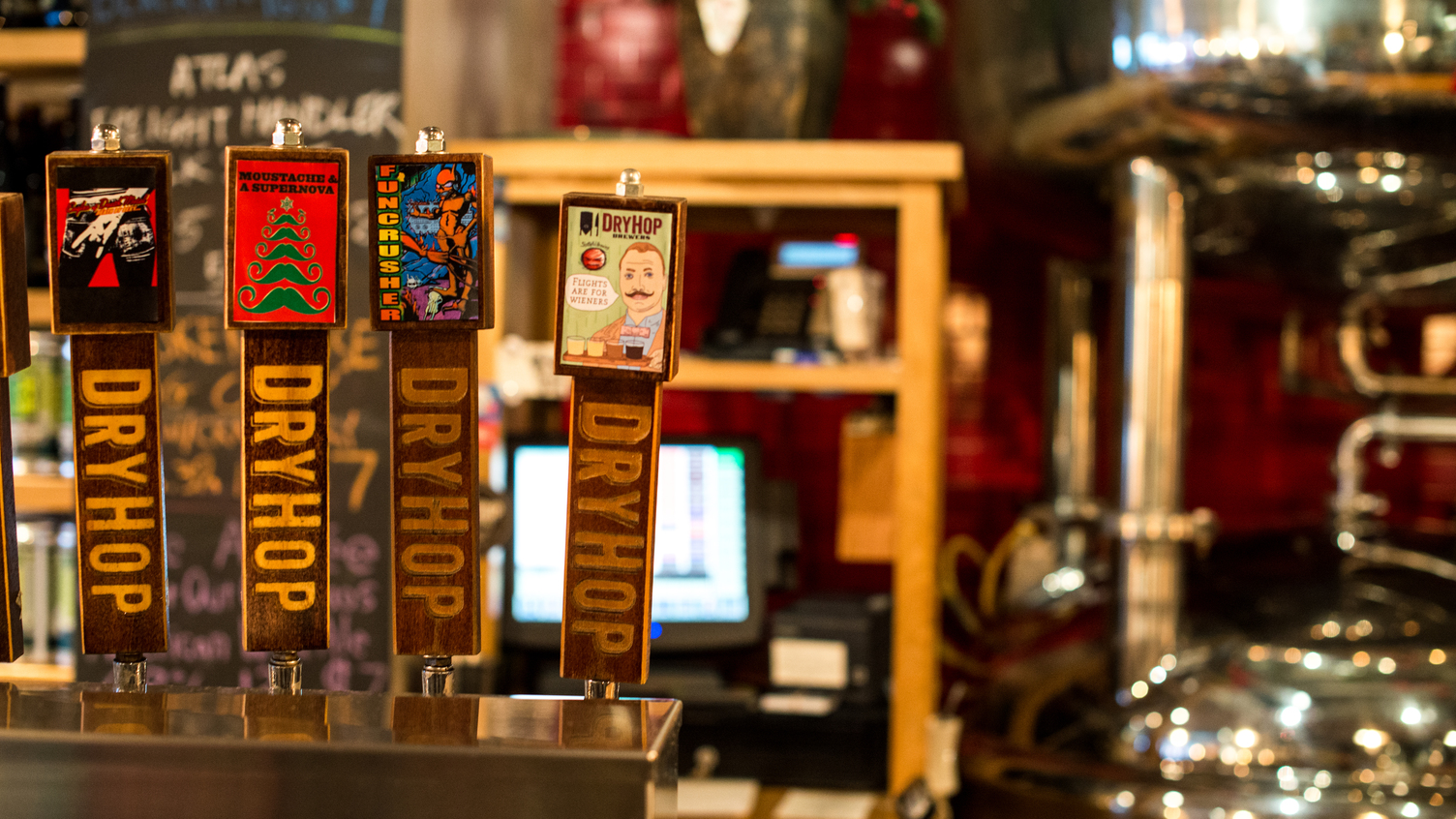
There’s a lot of attention to detail where you can’t turn your back on it for a minute. Where as a mass produced product you’re just pushing buttons to a degree. Not that there’s anything wrong with that. Some of those guys at the big breweries are geniuses and some of the smartest brewers in the world are there. Some of the best brewers work for AB because they are so good at what they do. The fact that they can get a product to taste the exact same way every single time is amazing to me. But I don’t see the bubble bursting. I see separate entities without a doubt.
How do you manage to stay so unique and fresh in Chicago with so much competition?
Turnover. Guaranteed you’ll see at least one new beer every week. In the summer you might see two or three new beers each week. We only have one year round beer, Shark Meets Hipster, so it gives someone who was here enjoying a beer on a Monday night, if they come in on Friday it might be a whole new beer menu and I think people like that. Of course being the only brewpub in Lakeview helps as well.
I also think it’s the neighborhood to a degree. A lot of people in Lakeview seem to be just out of college. When I was in college it was a lot different than now. There’s a lot more craft beer now as opposed to Milwaukee’s Best. This generation knows craft beer and knows what to expect from it and I think that helps a lot. People are out there looking for it as opposed to just stumbling upon it.
What will be the next trend in beer?
I see lagers coming back. I don’t think IPAs are ever going anywhere. Sours are having a very hard time gaining traction with the everyday beer drinker. I think the beer geeks love them and I love them and brewers love them.
I think lagers are going to start coming back especially with people growing up on craft beer as opposed to getting a Budweiser. Those lagers are going to come back and become the everyday drinking beer. I think people are going to want taste in their beer and that’s going to come back around with lagers.
What’s the future for DryHop?
I think we’re going to open up more of these. They won’t be called DryHop but that was always our expansion plan. We’re pretty much maxed out already since it’s standing room only every night. We opened up Corridor and it’s doing pretty well right now.They’ll be called something else but they’ll all be part of the DryHop family. I don’t think we’re ever going to do a giant 20,000 square foot brewery. It’s always going to be in that 3,000-4,000 square foot range.
Mike Zoller is the Chicago Editor for PorchDrinking.com. Follow him on Twitter: @mikezoller and Instagram: @chicagobeer.



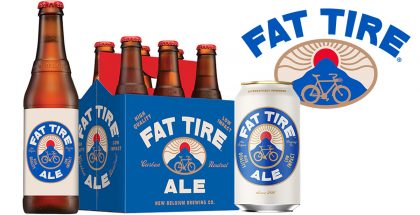
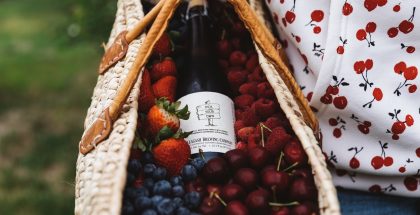
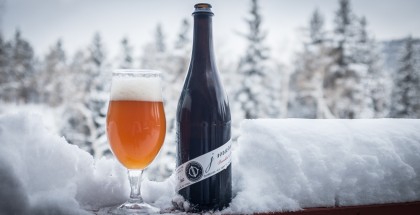
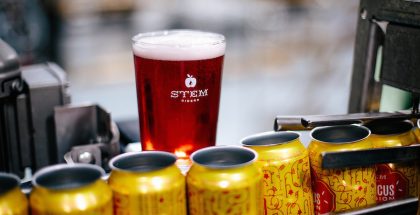
Submit a Comment